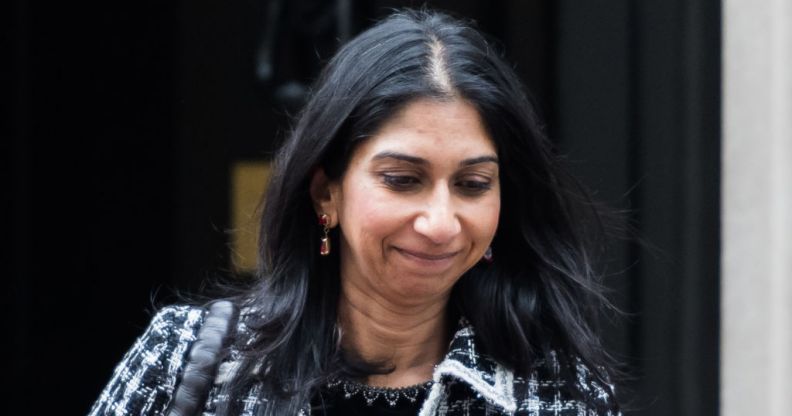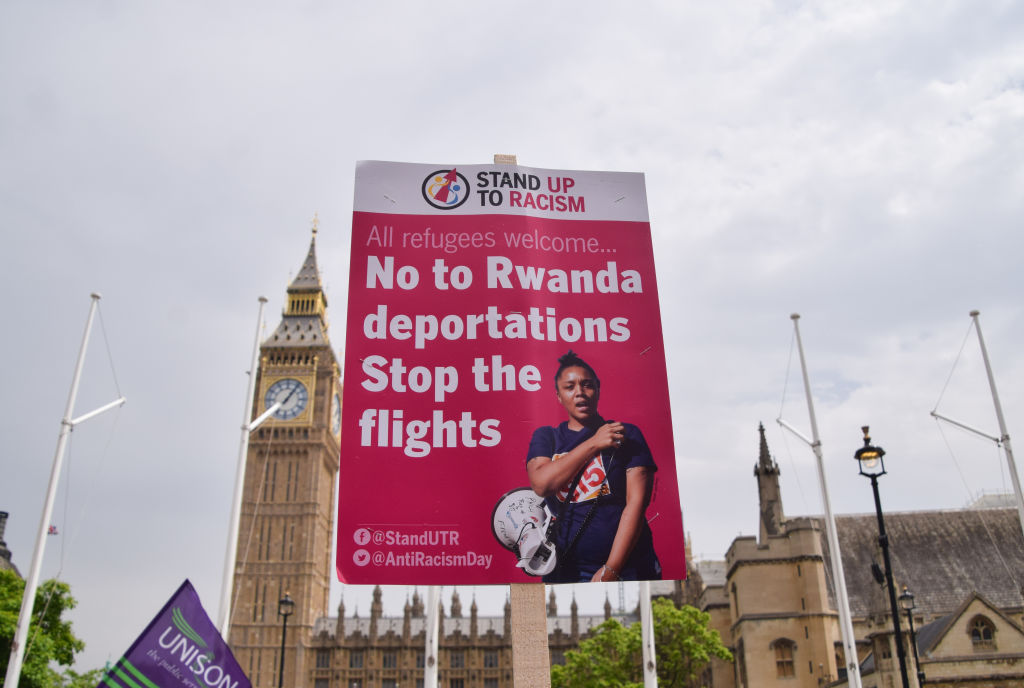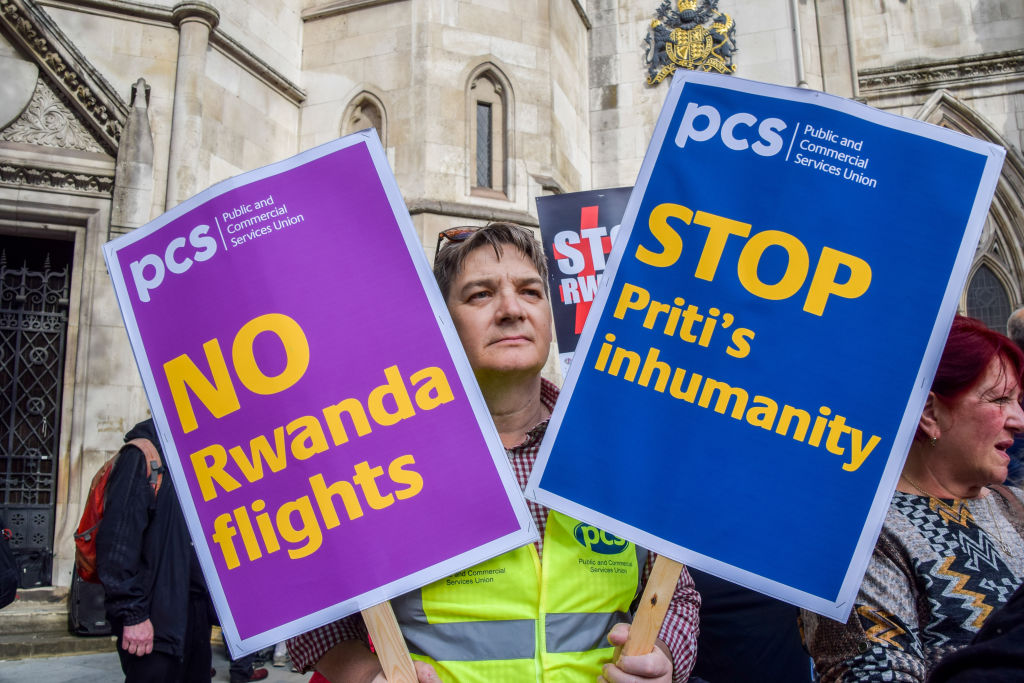Gay Rwandan woman says government can’t protect LGBTQ+ refugees: ‘They won’t be safe’

Braverman doesn’t believe fearing persecution for being gay is enough of a reason to seek asylum in the UK. (Getty)
Like many in Rwanda, Maria was raised Christian, which made it even harder for her to accept her sexuality.
She recalls spending “a lot of time in churches trying to pray it away”.
“I was really ashamed and I hated it,” she tells PinkNews. “My family thought it was a phase.”
It wasn’t until Maria (not her real name) grew up and moved abroad that she found a way to accept and embrace her sexuality. Eventually, she returned to Rwanda, determined to drive change for the next generation.
That change is happening, albeit slowly. While increased LGBTQ+ visibility is largely a good thing, Rwandan society being more aware of the existence of queer people can have negative consequences.
“People abroad have started to come out and this is putting a lot of stress on LGBT+ people in Rwanda,” Maria says.
“In the past, you could be in a relationship with someone of the same sex and nobody would think anything [was going on], but recently there have been some incidents of queer people being outed.
“It’s causing damage to the people that are living in Rwanda right now.”

Maria was initially hopeful that Rwanda’s deal with the UK would force its government to make things better for LGBTQ+ people.
Under the plan – which has been repeatedly stalled by legal issues since it was announced in April 2022 – people seeking asylum who arrive to the UK via the Channel or in the back of a lorry could be sent to have their application processed in Rwanda instead.
LGBTQ+ asylum charities have repeatedly warned that the policy could put queer people at risk, but the government remains determined to push ahead.
The Home Office says that LGBTQ+ people “can experience discrimination and abuse” in Rwanda in its official foreign travel advice.
Yet, home secretary Suella Braverman, who inherited the Rwanda policy from her predecessor Priti Patel with enthusiasm, continues to defend it.
“Same-sex relations is something that has always been considered a sin and a disgrace in Rwanda,” Maria says.
“There is a lot of stigma and a lot of discrimination that LGBT people are facing in the name of religion and culture.
“I am not sure if [people seeking asylum] are going to be safe from the public because the public is hostile towards LGBT+ people, and not even the government can protect people from that.”
‘Widespread evidence of discrimination’ against LGBTQ+ people in Rwanda
Since the Rwanda plan was first announced, the UK government has introduced its widely criticised Illegal Migration Bill. If passed, it would set out in law the “third countries” those who arrive to the UK seeking asylum could be deported to.
Carla Manso, communications manager at Rainbow Migration, says the bill “will put LGBTQI+ people seeking safety at further risk of harm”.
“The bill proposes to send people who have escaped from life-threatening situations in their home countries and sought protection in the UK, to a list of countries that are unsafe for LGBTQI+ people.

“Rwanda is included in that list, a country where there is widespread evidence of discrimination, violence and mistreatment of LGBTQI+ people.
“The situation for LGBTQI+ people in Rwanda is so dire that it is a source country for people seeking asylum in the UK based on their sexual orientation, albeit in low numbers, and we have previously provided support to LGBTQI+ people from Rwanda.”
Manso points to the experience of Innocent, a gay man from Rwanda who arrived in the UK as a refugee after a priest tried to change his sexuality. He has previously spoken to PinkNews about why he was forced to leave his home country.
“We are urging the government to stop this inhumane and dangerous bill immediately and instead focus on creating a compassionate and caring asylum system that treats people with kindness,” Manso says.
PinkNews has contacted the Home Office for comment. A spokesperson previously told PinkNews: “Everyone in scope for relocation to Rwanda will be individually assessed, and no one will be relocated if it is unsafe or inappropriate for them.”
How did this story make you feel?

